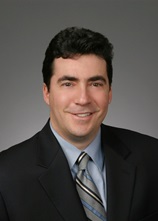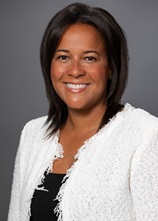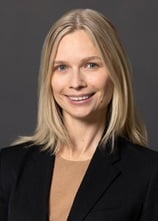Global Life Sciences Update
Physician-Owned Medical Device Arrangement Approved by HHS-OIG
Last week, the U.S. Department of Health and Human Services, Office of Inspector General (OIG) issued a favorable advisory opinion, Advisory Opinion 25-09, approving the investment structure of a medical device company (Requestor) that is partially owned by physicians (Physician Owners), including the physician-creator of the company’s medical devices, who are in a position to make or influence referrals to, or otherwise generate business for Requestor. Although OIG ultimately concluded that the arrangement satisfied all elements of the federal Anti-Kickback Statute (AKS) small entity investment safe harbor,1 the opinion underscores the agency’s continued suspicion of such arrangements and its intent to closely scrutinize physician joint venture arrangements.
The Proposed Arrangement
Requestor, a manufacturer of medical devices used in emergency stroke treatment, is partially owned by Physician Owners who may order or purchase Requestor’s devices or recommend a hospital order and purchase Requestor’s devices. In its request for an advisory opinion, Requestor certified several key facts about the arrangement that align with the elements of the small entity investment safe harbor, including:
- Physician Investment Interests Below 40 Percent: In the past fiscal year or 12-month period, Physician Owners, collectively, comprised approximately 35 percent of Requestor’s value of investment interests and no other owners are in a position to make or influence referrals, furnish items or services, or otherwise generate business for Requestor.
- Equal Terms for All Passive Investors: The terms of any investment Requestor offers Physician Owners who are passive investors (i.e., investors that are not responsible for day-to-day management of Requestor’s business, are not a bona fide partner in a partnership, and have not agreed in writing to undertake liability for actions of Requestor’s agents) have been and will be the same as the terms offered to any other passive investors.
- Investment Terms Not Tied To Investors’ Referral Volume or Business Generated: The terms of any investment Requestor offers to investors who can influence referrals or generate business for Requestor, such as a Physician Owner, have not been and will not be tied to the volume of past or expected referrals, items or services, or business generated.
- No Referral Requirements for Passive Investors: Requestor has not and will not require or suggest that passive investors generate referrals, provide items or services, or otherwise generate business for Requestor as a condition of keeping their ownership interest.
- Equal Marketing and Provision of Items or Services to Passive Investors and Non-Investors: Neither Requestor nor its investors market or provide Requestor’s items or services (or those of another entity under a cross-referral arrangement) to passive investors in a manner different from non-investors.
- Investor-Generated Revenue Below 40 Percent: In the past fiscal year or 12-month period, no more than 40 percent of Requestor’s health care-related gross revenue came from referrals or business generated by investors.
- No Loans: Neither Requestor nor any of its investors or agents has provided or will provide loans or loan guarantees to Physician Owners or other potential referral-source investors to help them acquire their ownership interest.
- Proportional Distributions: Requestor has not yet made profit distributions to Physician Owners, but, if it does, any payments to Physician Owners and other investors will be directly proportional to the investor’s capital contribution (including the fair market value of pre-operational services rendered).
The Agency’s Analysis
According to OIG, the arrangement implicates the AKS because Requestor’s Physician Owners “hold an ownership interest in Requestor that may result in profit distributions, and the Physician Owners may order or purchase Requestor’s products and be in a position to recommend the ordering or purchasing of Requestor’s products,” which may be reimbursable by federal health care programs.2 Referencing its 2013 Special Fraud Alert, OIG reiterated its “longstanding concerns regarding physician-owned entities that derive revenue from selling, or arranging for the sale of medical devices ordered by their physician owners for use in procedures the physician owners perform.”3 Specifically, OIG highlighted that such entities are viewed as inherently suspect under the AKS, particularly where they display “questionable features,” such as when manufacturers select “investors who are in a position to generate substantial business for the entity,” require “investors who cease practicing in the service area to divest their ownership interests,” and distribute “extraordinary returns on investment compared to the level of risk involved.”4
OIG also flagged as suspect arrangements where Physician Owners condition referrals on hospitals’ purchases of the entity’s devices—for example, by suggesting they will take surgeries elsewhere if a hospital does not purchase the devices, promising to bring surgeries if it does, or requiring the hospital to buy exclusively from the physician-owned entity.
Nevertheless, OIG determined the arrangement is protected by the small entity investment safe harbor, as, according to Requestor’s certifications discussed above, each element of the safe harbor was fully met. OIG further stated that its favorable opinion remains contingent upon Requestor’s ongoing compliance with the certified facts.
OIG concluded by stating that other similar arrangements involving physician-owned entities that do not meet all elements of the small entity investment safe harbor—which can be challenging to meet—likely raise fraud and abuse risk and should be evaluated on the specific facts of the arrangement.
Although OIG advisory opinions are binding only on the requestor, this opinion offers meaningful guidance for industry stakeholders considering similar investment structures.
In particular, this opinion provides a helpful roadmap for designing physician investments not only in medical device companies, but also pharmaceutical and biologics manufacturers, clinical laboratories, and other life sciences companies, so long as the arrangements meet all elements of the small entity investment safe harbor. According to this opinion, similar physician-owned arrangements that fail to meet all elements of the safe harbor may present heightened risk under the AKS.
The opinion also makes clear that compliance is not a one-time exercise. Even if an investment arrangement satisfies the safe harbor at the outset, the parties should continually monitor the arrangement to ensure ongoing compliance.
1 42 U.S.C. § 1001.952(a)(2).
2 OIG, Advisory Opinion No. 25-09, at 5 (Aug. 7, 2025).
3 Id.
4 Id.
Attorney Advertising—Sidley Austin LLP is a global law firm. Our addresses and contact information can be found at www.sidley.com/en/locations/offices.
Sidley provides this information as a service to clients and other friends for educational purposes only. It should not be construed or relied on as legal advice or to create a lawyer-client relationship. Readers should not act upon this information without seeking advice from professional advisers. Sidley and Sidley Austin refer to Sidley Austin LLP and affiliated partnerships as explained at www.sidley.com/disclaimer.
© Sidley Austin LLP
Contacts
Capabilities
Suggested News & Insights
- Stay Up To DateSubscribe to Sidley Publications
- Follow Sidley on Social MediaSocial Media Directory


